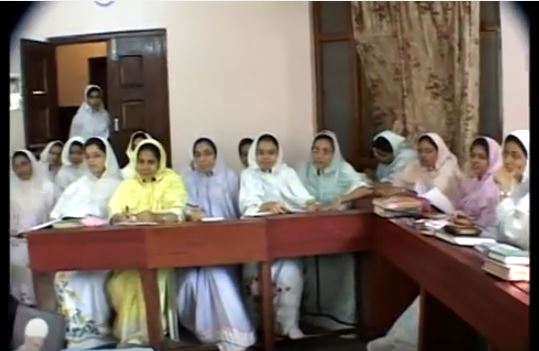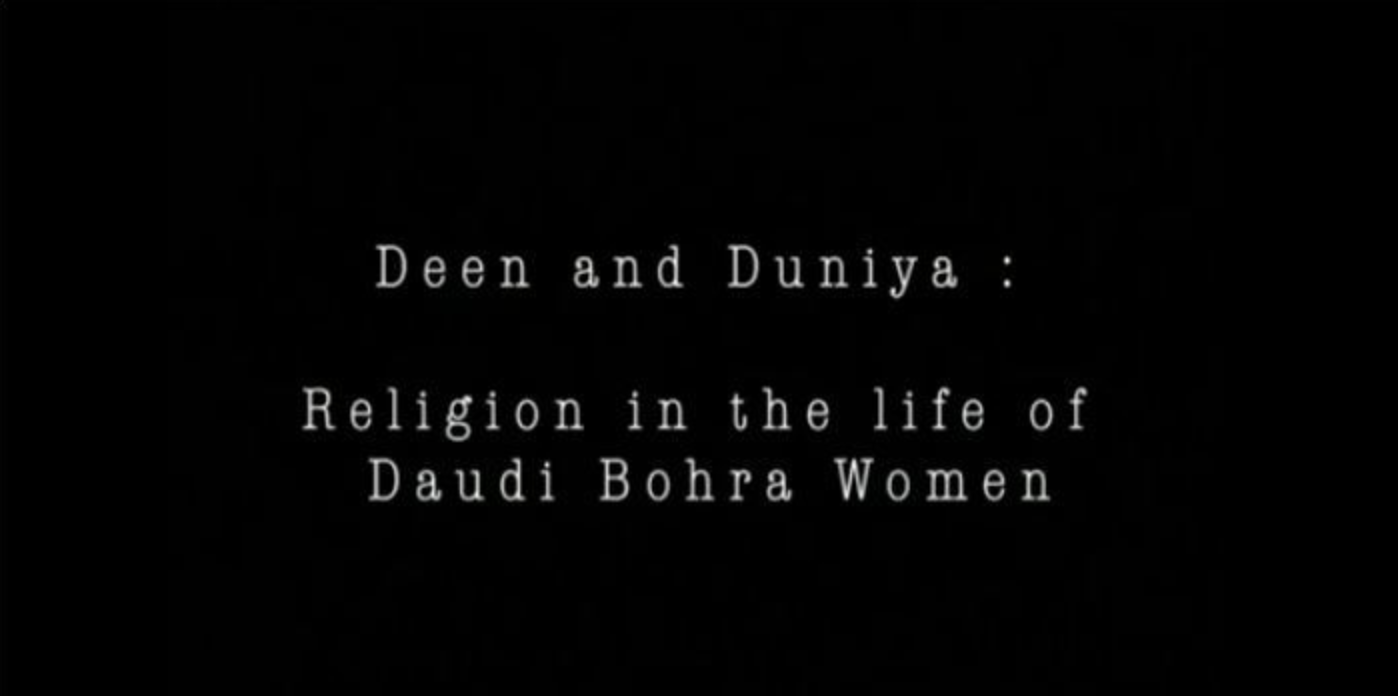By Alisha Bhagat
Country: United States & India
I made Deen and Duniya in 2004 before my senior year in college. I received a Vira Heinz grant for women in leadership and thought it would be interesting to turn an anthropological lens on my own community – the Dawoodi Bohras. I am particularly interested in the role of women in the Bohra community and wanted to better understand certain dilemmas I saw while growing up in the community. When I sat down with people one-on-one while making this documentary, I found I was able to connect with them more and find out their logic for observing certain practices – be that science or faith.
The film is intended for a wide audience both inside and outside the community. For non-Bohras I wanted to show the positive things about our community and the everyday joy that we experience in things like sports, prayer, communal meals and family. I also wanted to highlight some of the issues that all women in patriarchal societies face – control over women’s sexuality, bodily autonomy, and the dual burden of work and running a household. I did not set out to make a film about FGM but I knew from the beginning that it should be included.
(To watch the video click here.)
It is both a wonderful and frustrating time to be a Bohra woman. As the film highlights, we are given so many opportunities for achieving educational and career goals. We are quick to adopt new technology and want to live in the modern world. At the same time, we are often required to shoulder a greater burden than men. We have to work hard in our careers and also cook and clean and raise children. We have a lengthy Iddat (mourning) period that men don’t have, and are silenced from talking about the things happening to our bodies. I recall knowing from an early age that my father and brother were circumcised but it was only after I went to college that my mom revealed to me that she had been also. I found it so interesting that a practice so widespread was so taboo.

Storytelling can be a powerful tool in creating social change. For example, a group of researchers in Sudan found that entertaining films can change attitudes and reduce gender bias. For those within the community, the purpose of the film is to start a conversation about why we observe certain practices. I’m proud that it can continue to do that. For years my parents used to show the film to every bohra guest that came over to our house (and I can assure you, that’s a lot). In the film we intentionally ask open-ended questions and the views of the interviewees are their own. Often after seeing the film, folks would share their own stories. My hope is that the film inspires you to do the same.
The segment on FGM begins at the 19 min mark. However, it is recommended that the film be viewed in its entirety to understand the practice within its cultural context.
Bio:
Alisha Bhagat is passionate about sustainable development. She is a futurist, feminist, and avid gamer. She lives in New York with her husband, beloved daughter, and adorable kitty.

